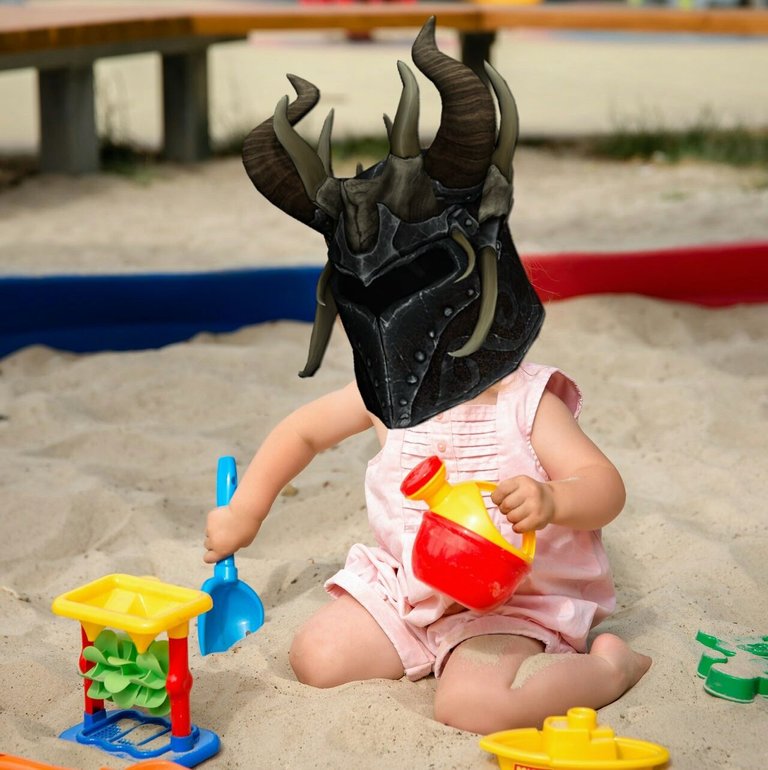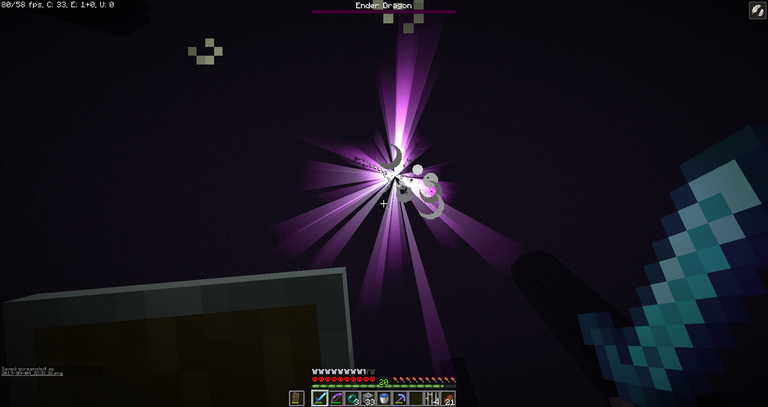Explaining bored stuff in English
We all know sandbox games, Minecraft, Elder Scrolls or Grand Theft Auto are some of the most widely known. But that doesn't mean everybody loves them. Some people find them boring and a lot of us that do like them have felt that way sometimes, but why?

Sandbox games are characterized by vast maps, with vast opportunities and things to do. They have a flexible path and wandering around aimlessly is specially easy. This is where the problem is. Most games are very straightforward. The next step is always clear enough, mainly because there's nothing else to do. This is not necessarily a bad thing. Linear, restricted game development is, let's be honest, a safer way to work. As a developer, you choose timings and give purpose as needed throughout the game, players have little ways of making bad choices and discarding the experience.
I mean, I love sandbox games. They give freedom in ways to do stuff and there are many different ways of playing the game every time. Even so, I do get bored of them, but I believe that's because the lack of purpose. At the beginning of the game, things are very clear: survive, create, explore, destroy, whatever suits you best or the most well known goal for the game is. Later on, we tend to forget these games are made to be ambiguous, and we mistake the gap left to fill for your own creations with void and incompletion.
With games where many options are laid out for you to pick, some may feel like no progress is ever being made, since there's no progress bar or anything to show how much you've done. Progress becomes a personal and very subjective thing, if you don't stablish your own goals and fill up that bar, that lack of purpose will probably make you quit.

Since the game is for a good part a creation of the player, some may argue sandbox features are just lazy game design. And I get the point. When you put in that ambiguity factor, you let players fill that in any way they find the most satisfactory, and like, they're kinda bound to like it. You're partially letting them do your job. But there's an underlying point not so many people get, lazy doesn't mean bad.
It is, in the end, very personal. If you like it or not isn't necessarily depending on quality, or even that purpose I talked about. Sandbox games are a risky market just because if the public doesn't imagine the right things, it'll be part of the game itself. But giving them a shot could write a new love story right there.
| All images used on this post are my own unless stated otherwise. |
|---|

Explicando vainas que están aburridas en español
Todos conocemos los juegos de mundo abierto, siendo Minecraft, Elder Scrolls o Grand Theft Auto algunos de los más conocidos, pero conocido no es sinónimo de querido. Hay quien los encuentran aburridos y a quien le gustan también se puede haber sentido así, pero ¿por qué?

Los juegos de mundo abierto se caracterizan por tener mapas extensos, con muchas oportunidades y cosas que hacer. Tienen un recorrido flexible y divagar sin un objetivo es especialmente fácil, y ése es el problema. La mayoría de los juegos son bastante directos, el siguiente paso siempre está claro, principalmente porque hay de poco a nada más que hacer, pero esto no es necesariamente algo malo. El desarrollo de juegos lineal y restringido es, seamos sinceros, una forma más segura de trabajar. Como desarrollador, eliges los tiempos y otorgas el propósito necesarios a lo largo del juego, los jugadores tienen menos posibilidades de tomar malas decisiones y descartar la experiencia.
Para ser honesta, me encanta este tipo de juegos. Dan una libertad en las formas de hacer las cosas y hay muchas formas diferentes de jugar cada vez. Aún así me aburro de ellos, pero creo que es por la falta de propósito. Al principio del juego, las cosas están muy claras: sobrevivir, crear, explorar, destruir, lo que más te apetezca o el objetivo más conocido del juego. Más adelante, tendemos a olvidar que estos juegos están hechos para ser ambiguos y confundimos el vacío que se deja para nuestras propias creaciones con algo incompleto.
En los juegos en los que hay múltiples opciones a elegir, algunos pueden tener la sensación de que no se está progresando. No hay una barra de progreso, nada que muestre cuánto has hecho. El progreso se convierte en algo personal y muy subjetivo, si no estableces tus propias metas y llenas esa barra, esa falta de propósito probablemente te hará abandonar.

De este modo el juego es en gran parte una creación del jugador, así que se puede decir que las características de mundo abierto son simplemente un diseño de juego perezoso, y lo entiendo. Cuando añades ese factor de ambigüedad, dejas que los jugadores lo llenen de la manera que les parezca más satisfactoria, y es obviamente les va a gustar. Un poco les dejas hacer tu trabajo. Pero hay un punto subyacente que no mucha gente entiende, perezoso no significa malo.
Al final es algo muy personal. Que te gusten o no, no depende necesariamente de la calidad o de ese propósito del que hablaba. El de este tipo de juegos es un mercado peligroso sencillamente porque si el público no se imagina las cosas correctas, lo que sea que imaginen será parte del propio juego. pero darles una oportunidad podría escribir una nueva historia de amor y serenatas.
| Todas las imágenes utilizadas en este post me pertenecen, a menos que establezca lo contrario. |
|---|
Tengo una relación amor-odio con el sandbox, es un formato que cuando está bien hecho tienen mucho potencial, pero pocos estudios saben sacarle verdadero provecho. También es importante evaluar si el juego tiene una necesidad de ser un sandbox o no, cuando títulos como Minecraft o Skyrim necesitan este formato por su propia naturaleza hay otros títulos que bien podrían ser lineales.
Hay juegos que son más lineales en el sentido de que existe una historia principal, pero son de mundo abierto. Ahí es usualmente donde la embarran, porque no cuidan la posibilidad de que el jugador se pierda y se aburra o se frustre. Hay que saber manejar ambos conceptos muy bien, pero muchas veces ni siquiera se considera ese problema.
Congratulations @random-n00b! You have completed the following achievement on the Hive blockchain and have been rewarded with new badge(s):
Your next target is to reach 500 upvotes.
You can view your badges on your board and compare yourself to others in the Ranking
If you no longer want to receive notifications, reply to this comment with the word
STOPCheck out the last post from @hivebuzz:
Support the HiveBuzz project. Vote for our proposal!